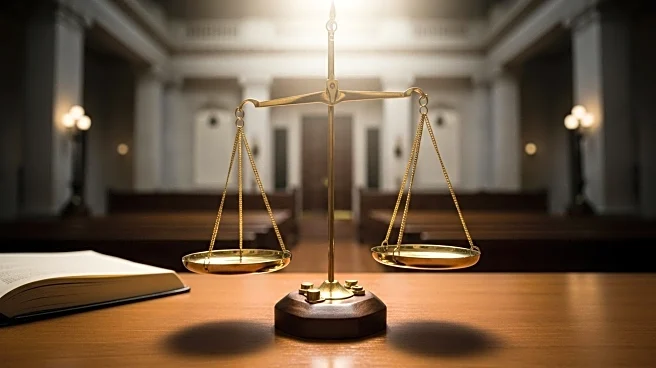What's Happening?
The Supreme Court is set to address several significant cases in its upcoming term, focusing on presidential powers and voting rights. Among the cases is Louisiana vs. Callais, which questions the constitutionality of Section 2 of the Voting Rights Act. This section prohibits state and local governments from implementing election systems that discriminate against voters of color. The court will also review cases related to President Trump's executive actions, including his authority to impose tariffs and the power to fire agency heads. These cases could redefine the scope of presidential powers and impact civil rights protections.
Why It's Important?
The outcomes of these cases could have profound implications for U.S. governance and civil rights. A decision to strike down Section 2 of the Voting Rights Act could weaken protections against racial discrimination in voting, potentially affecting voter turnout and representation, particularly in Southern states. Additionally, rulings on presidential powers could either reinforce or limit the executive branch's authority, influencing future administrations' ability to enact policies unilaterally. These decisions will likely shape the balance of power between the federal government and states, as well as between the executive and legislative branches.
What's Next?
The Supreme Court's decisions in these cases will be closely watched by political leaders, civil rights organizations, and legal experts. If the court rules against Section 2, it may prompt legislative efforts to restore or replace these protections. Similarly, rulings on presidential powers could lead to new legal frameworks or congressional actions to clarify the limits of executive authority. The outcomes may also influence public opinion and voter engagement in upcoming elections, as stakeholders assess the impact on democracy and civil rights.
Beyond the Headlines
These cases highlight ongoing debates about the role of the judiciary in checking executive power and protecting civil rights. The potential overruling of longstanding precedents could signal a shift towards a more conservative interpretation of the Constitution, affecting future legal battles over civil liberties and government authority. The decisions may also reflect broader cultural and political divides in the U.S., as the court navigates contentious issues that resonate with diverse constituencies.








